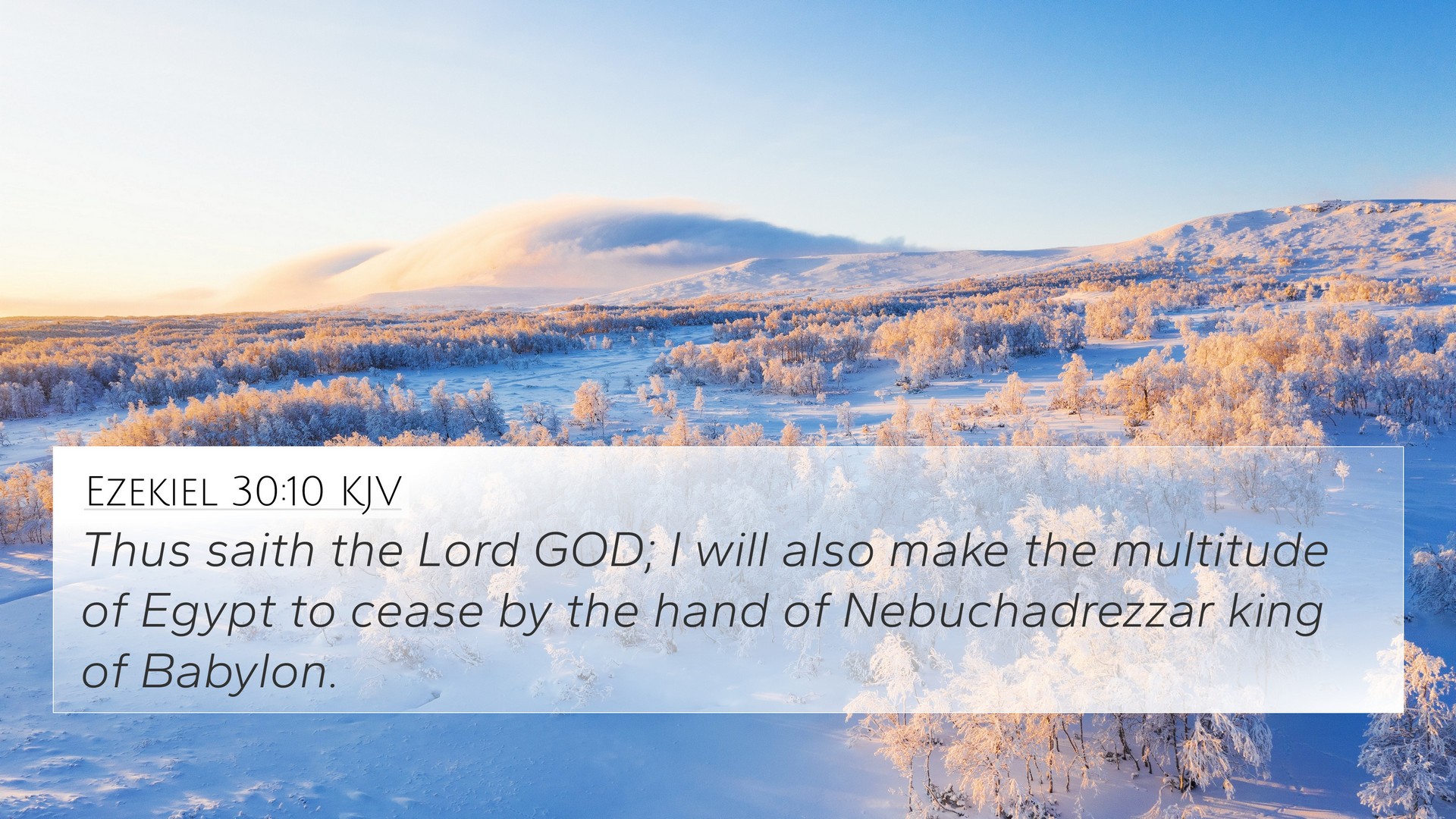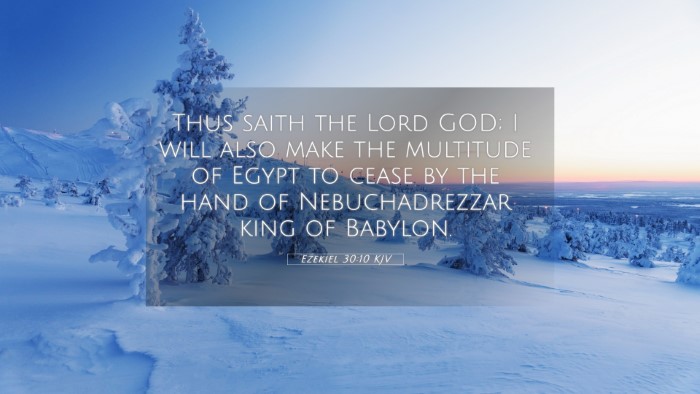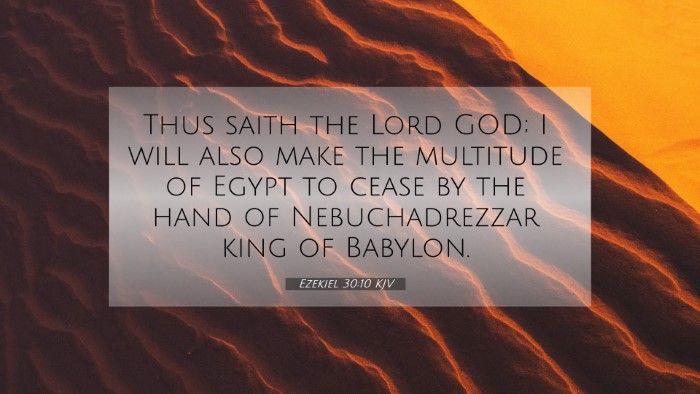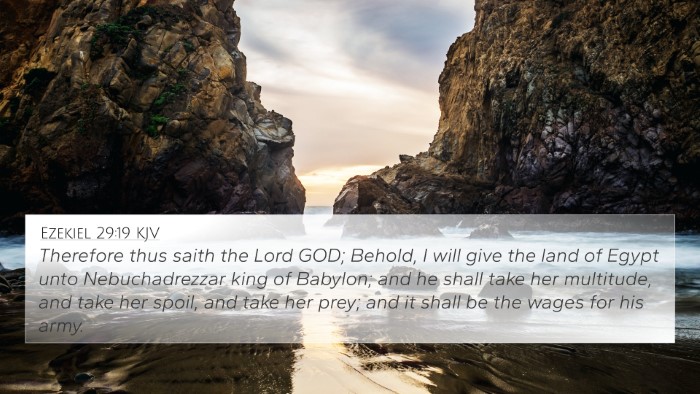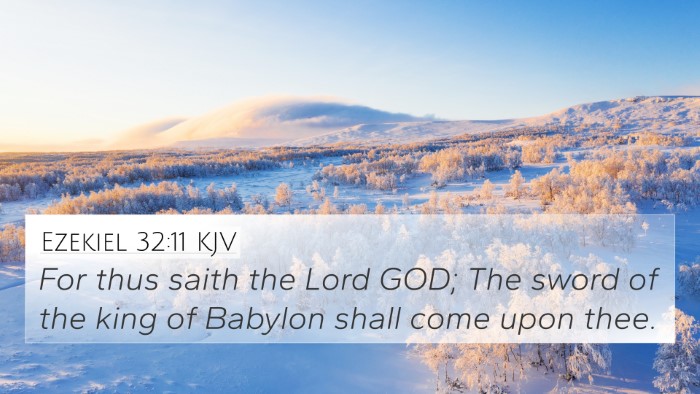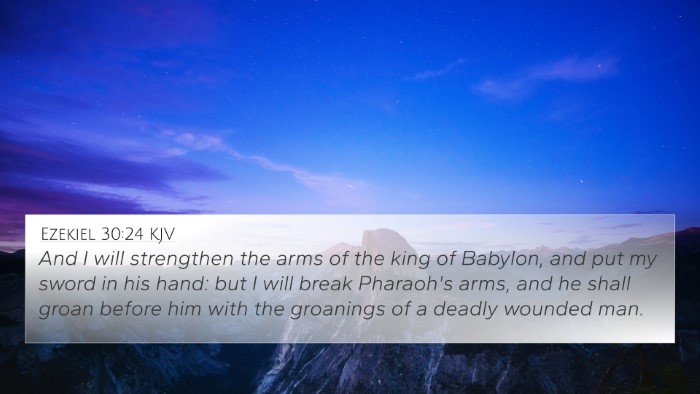Ezekiel 30:10 - Summary and Interpretation
Ezekiel 30:10 states: "Thus says the Lord God: I will also make a multitude of Egypt to cease by the hand of Nebuchadnezzar king of Babylon." This verse captures a pivotal moment in prophetic literature, signifying the impending doom of Egypt and the might of Babylon as an instrument of divine judgment.
Contextual Background
The nuances of Ezekiel's prophecies occur within the broader context of God's dealing with nations and ultimately point to His sovereignty. Ezekiel was a prophet during the Babylonian exile, tasked with delivering messages of judgment and hope.
Insights from Public Domain Commentaries
The following commentaries provide valuable insights into the verse:
-
Matthew Henry:
Henry highlights that God's judgment upon Egypt serves as a reminder of His control over human kingdoms. He notes that even a powerful nation like Egypt is not immune to divine authority, as it will fall before Babylon. This serves to instill reverence and fear of God amongst His people.
-
Albert Barnes:
Barnes emphasizes that the phrase concerning a "multitude of Egypt" indicates a significant loss, suggesting that the destruction will be extensive and devastating. He discusses how this act serves to fulfill God's plans and demonstrates the certainty of prophecy.
-
Adam Clarke:
Clark elucidates the prophetic nature of this statement, linking it to broader themes of judgment throughout scripture. He reveals that the mention of Nebuchadnezzar underscores God's use of pagan rulers to accomplish divine justice, thus expanding the understanding of God’s sovereignty over nations.
Thematic Connections and Cross-References
Understanding Ezekiel 30:10 can be enriched through thematic cross-referencing with other scripture. Here are several relevant cross-references:
- Isaiah 19:1: Prophecy against Egypt, emphasizing the turmoil that will befall it, reflecting a similar message in Ezekiel.
- Jeremiah 43:10: Further discourse on God's judgment of Egypt through Babylonian power.
- Daniel 1:1-2: The Babylonian conquest of Jerusalem ties into the supremacy of Babylon in this judgment motif.
- Habakkuk 1:6: God's appointment of the Chaldeans as instruments of judgment resonates with Ezekiel's theme.
- Ezekiel 7:3: A reminder of God’s unwavering judgment in the land, expanding on the theme presented in Ezekiel 30:10.
- Revelation 17:18: The symbolism of nations and power as judged in the eschatological context connects with the themes in Ezekiel.
- Isaiah 45:1: Demonstrating how God raises rulers for His purposes aligns with the implications of Ezekiel 30:10.
Inter-Biblical Dialogue
The expression of God judging nations by raising earthly powers engages with a larger theological dialogue found throughout the Bible. This concept allows believers to see God's hand in history and His governance over not just Israel, but all nations.
Conclusion
Ezekiel 30:10 invites readers to appreciate the weight of divine sovereignty demonstrated in judgment. By exploring relationships with other scriptures, one can gather insights into the comprehensive nature of God's plans and purposes. Tools for cross-referencing can further enhance this study, enabling deeper thematic connections and greater understanding of Biblical texts.
Engaging in a cross-reference Bible study is vital for uncovering connections between Bible verses and understanding the interwoven narratives of the Bible. By identifying themes and relational dynamics, one can uncover the richness of scripture and develop a more profound spiritual understanding.
